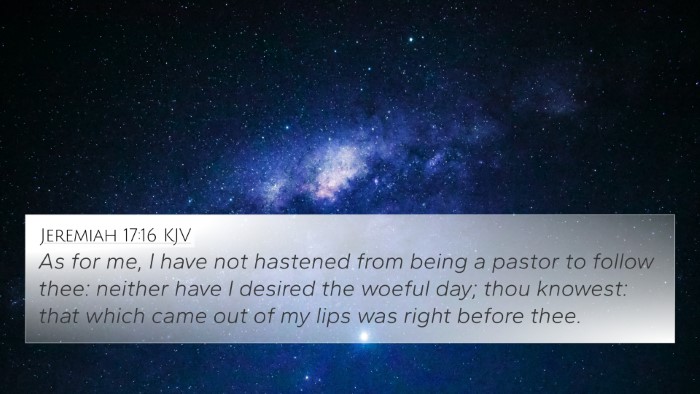Understanding John 3:27
John 3:27: "John answered and said, A man can receive nothing, except it be given him from heaven."
This verse encapsulates a profound truth about the sovereignty of God in bestowing gifts and understanding the role of individuals in His divine plan. Below is a synthesized commentary of John 3:27, drawing insights from noted Bible commentaries.
Verse Meaning and Commentary
Matthew Henry Commentary:
Matthew Henry elucidates that this verse signifies the acknowledgment of God's authority over all things. It emphasizes that human beings do not possess anything inherently; all they have comes from divine grace. John the Baptist recognizes that his role in the ministry and the success of his baptisms are attributable to God's will and intentions.
Albert Barnes Commentary:
Albert Barnes interprets this verse through the lens of divine ordination. He emphasizes the point that John the Baptist was aware of his limitations and the necessity of receiving from God, which serves as a reminder to believers to remain humble. Everything we achieve is ultimately a gift from heaven, reflecting the importance of dependence on God’s providence.
Adam Clarke Commentary:
Adam Clarke provides an insight into the Greek terminology used in the text, which refers to ‘receiving’ as a passive action indicating dependence. Clarke points out that John declares the source of his authority and success in ministry, attributing all to God. He suggests that John exemplifies the attitude of a true servant by recognizing God's hand in all aspects of life and ministry.
Key Themes and Cross-References
John 3:27 offers several themes relevant to Christian doctrine and practice. Below are key themes and cross-references that deepen the understanding of this verse:
- Divine Sovereignty: James 1:17 - "Every good gift and every perfect gift is from above, and comes down from the Father of lights."
- Humility and Dependence on God: Philippians 2:3 - "Do nothing out of selfish ambition or vain conceit. Rather, in humility value others above yourselves."
- Role of a Servant: Matthew 25:21 - "His master replied, 'Well done, good and faithful servant! You have been faithful with a few things; I will put you in charge of many things.'"
- Gifts from God: 1 Corinthians 12:4-6 - "There are different kinds of gifts, but the same Spirit distributes them."
- God as Provider: Philippians 4:19 - "And my God will meet all your needs according to the riches of his glory in Christ Jesus."
- Joy in Divine Purpose: John 15:11 - "I have told you this so that my joy may be in you and that your joy may be complete."
- The Call to Ministry: 2 Timothy 1:9 - "He has saved us and called us to a holy life—not because of anything we have done but because of his own purpose and grace."
Conclusion: Theological Implications
The implications of John 3:27 extend into various theological discussions, particularly those surrounding grace, humility, and divine calling. This verse encourages believers to recognize God as the ultimate source of all gifts and abilities, fostering a sense of gratitude and reliance on divine providence.
By cross-referencing other biblical texts, we can see a consistent theme regarding the nature of God's gifts, the importance of humility, and the recognition of our roles as stewards in His kingdom. This highlights the interconnectedness of scripture and the richness of biblical interpretation available through thematic Bible verse connections.
Further Study: Tools for Bible Cross-Referencing
To delve deeper into cross-referencing Bible verses, consider using:
- Bible concordance
- Bible cross-reference guide
- Cross-reference Bible study
- How to use Bible cross-references
- Cross-referencing Bible study methods
Utilizing these resources will enhance understanding of the interconnectedness of biblical passages and will aid in sermon preparation and personal study.
In conclusion, John 3:27 serves as a profound reminder of our dependence on God for everything. As believers, recognizing this truth can transform our approach to life, ministry, and relationships, ensuring that we remain aligned with God's purpose and grace.


























